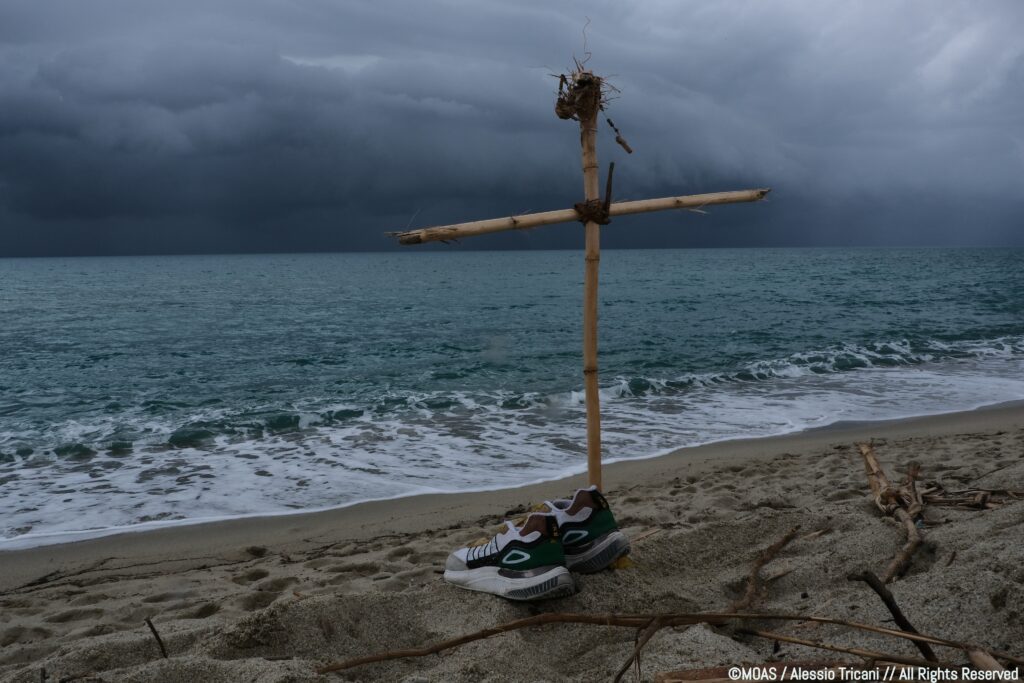“Time to implement safe and legal routes, destigmatize self-repatriation and improve awareness and information campaigns among migrants”– says MOAS Co-founder and Director Regina Catrambone on EU-Tunisia Deal
![]() The European Union and Tunisia reached an agreement in which Brussels will provide hundreds of millions of euros to Tunisia to halt the crossing of migrants in the Central Mediterranean. “This is an investment in our common prosperity, stability, and future generations,” said the President of the European Commission Ursula Von der Leyen finalising the deal.
The European Union and Tunisia reached an agreement in which Brussels will provide hundreds of millions of euros to Tunisia to halt the crossing of migrants in the Central Mediterranean. “This is an investment in our common prosperity, stability, and future generations,” said the President of the European Commission Ursula Von der Leyen finalising the deal.
The agreement comes at a time when Tunisia is experiencing a spike in the number of attacks against migrants and a new wave of migrants crossing to Europe from its shores. Tensions reach their apex during clashes between residents of the port city of Sfax and thousands of Sub-Saharians trying to set off to Italy.
Since last year, Tunisia has seen a sudden climb in episodes where the migrant community has been targeted. The nation has been in the spotlight for remarks by its President Kais Saied, who emphasized that Tunisia won’t become the guard for Europe and a settlement for immigrants trying to cross to Italy and raised doubts on the effectiveness of Europe’s strategy to manage migration’s flows.
EU’s approach to migration
The European Commission recently offered a one billion package to help Tunisia’s state finances in exchange for support in the migration phenomenon dossier. Despite many critics of the deal, the EU Commission is implementing the aid package.
The deal, controversially, is expected to provide a legal framework allowing EU member states to return people to the country and is modeled on the €6 billion ‘cash for migrant control’ pact agreed between the EU and Turkey in 2016. The agreement aimed at stopping the flow of migration via Turkey to Europe and it stated that all new migrants and asylum seekers arriving from Turkey to Greece whose applications for asylum have been declared inadmissible should be returned to Turkey.
Similarly, since 2015 the EU Commission poured over 57 billion into Lybia through the Emergency Trust Fund for Africa to provide technical and material assistance. Still, authorities continue to neglect the miserable conditions of migrants, while many reports indicate abuse and torture in several detention centers across the nation.
Security and human rights
Implementing and securing agreements with third countries to stop and control migration routes from the global south to Europe continue to be a highly divisive topic.
“Our aim should be for our current initiative with Tunisia to act as a blueprint for similar partnerships in the future,” European Commission chief Ursula von der Leyen said in a letter to EU leaders, adding that the “Commission will seek new comprehensive partnerships with third countries”.
As already underlined by MOAS, the EU is dealing with an unprecedented number of migrants and asylum seekers trying to reach Europe. However, broking agreements with third countries to externalise the control of European borders must come with a shared responsibility among the EU state members toward the world’s most vulnerable, who simply seek safety and security.
Managing not blaming
“Working with third countries in the framework of migration flows is a fundamental step for the European Union and imperative for a constructive dialogue with other relevant players in the migration flows,” said Regina Catrambone, Director and Co-founder of Migrant Offshore Aid Station. “We need to operate within a consistent framework that will bind future deals to a roadmap that shall unblock funds accordingly with humanitarian and democratic improvements reached by these partners.”
In addition to any agreement that aims to manage the flow of migrants and asylum seekers, it is also imperative to implement safe and legal routes for all those people that are escaping war, persecution, and famine and that could get trapped in an indiscriminate pushback mechanism.
“Establishing migration policies exclusively based on pushback or repression measures will only reinforce the smuggling and trafficking networks and won’t help to secure the shores of Europe. It’s time to implement safe and legal routes, destigmatize self-repatriation and improve awareness and information campaigns among migrants,” Catrambone said.
MOAS has been advocating for years to implement Safe and Legal Routes of migration and to establish mechanisms so that people fleeing conflict and violence are not forced to take perilous crossing endangering their lives. MOAS also calls for implementing the “flights of hope” as a sign of humanity and political responsibility by European countries. This would avoid the dangerous migration routes and prevent the loss of lives while respecting international obligations to asylum seekers and managing migration flows to ensure security for the European Union and resettlement countries.

